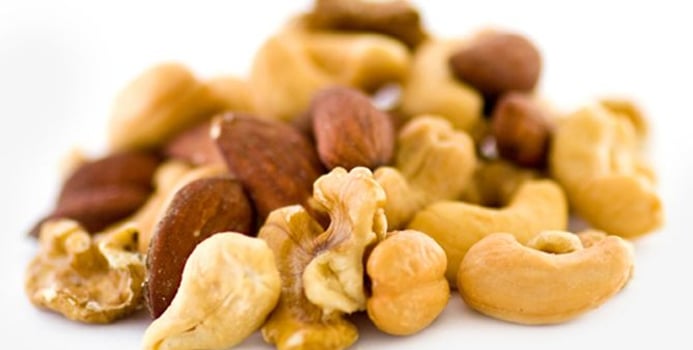Essential fatty acids are specific fats that are critical to the proper function of your body. Your body is not able to produce these fatty acids on its own, so it is necessary that you eat a diet rich in these crucial building blocks to maintain a healthy body. The two main essential fatty acids that need to be included in your diet are omega-6 and omega-3 fatty acids.
How Do Essential Fatty Acids Aid the Body?
Essential fatty acids have a ton of benefits on your body and its cells. They help with cellular development and the formation of healthy cell membranes, and they have actually been shown to block tumor formation in animals, as well as block the growth of human breast cancer cells.
Essential fatty acids assist in the development and function of the brain and nervous system, and they help regulate proper thyroid and adrenal activity. They play a role in thinning your blood, which can prevent blood clots that lead to heart attacks and stroke. They also possess natural anti-inflammatory qualities that can relieve symptoms of both arthritis and other autoimmune system diseases.
Essential fatty acids regulate blood pressure, immune responses and liver function, as well as help with blood clotting and breaking down cholesterol. They also help you look good, as a diet low in these fatty acids has been shown to create skin problems, including eczema, dandruff, split nails and brittle hair.
What Happens if I Don't Obtain Enough Essential Fatty Acids?
Not getting enough omega-3 fatty acids has the most astounding effects. Low levels have been linked to:
- mood swings
- memory loss
- dementia
- vision problems
- hair and skin problems
Additionally, both Alzheimer's patients and children diagnosed with ADHD have been shown to have lower than average levels of these essential fatty acids.
What Foods Contain Essential Fatty Acids?
There are many sources of essential fatty acids that you can add to your diet to get the nutrients that you need. Omega-3 sources include:
- nuts
- soybeans
- walnut oil
- canola oil
- flaxseed oil
- cold water fatty fish such as salmon, herring, cod, flounder, tuna, bluefish and shrimp
Omega-6s are found in a lot of nuts, oils and meats, but these are well accounted for in a typical Western diet and should not be a concern.
How Much Do I Need?
There is no recommended amount of essential fatty acids in your diet, as everyone is different and has different needs. It is recommended that essential fatty acids make up 3% to 6% of your daily caloric intake. Of this percentage, you should consume 2 to 4 times more omega-6 fatty acids than omega-3 fatty acids. The typical American diet, however, is quite out of balance, with an average closer to 14 to 25 times more omega-6 fatty acids than omega-3s due to high meat consumption.
Many doctors and nutritionists recommend eating fatty fish 2 to 3 times a week to satisfy your omega-3 intake. This, along with nuts and healthy oils, can give you the necessary nutrients needed to benefit from essential fatty acids in your diet.
Can I Take Supplements?
There is the option to take supplements to provide you with omega-3 fatty acids. These include fish oil supplements that generally also contain small amounts of nuts or oils. Read the labels and speak to your doctor about recommendations on the amount of these supplements you should add to your diet.
No matter how you get it, essential fatty acids are crucial to your body's health. Review your diet and make sure that you are including enough of these building blocks, and if not, make some changes now to support your continued health.



